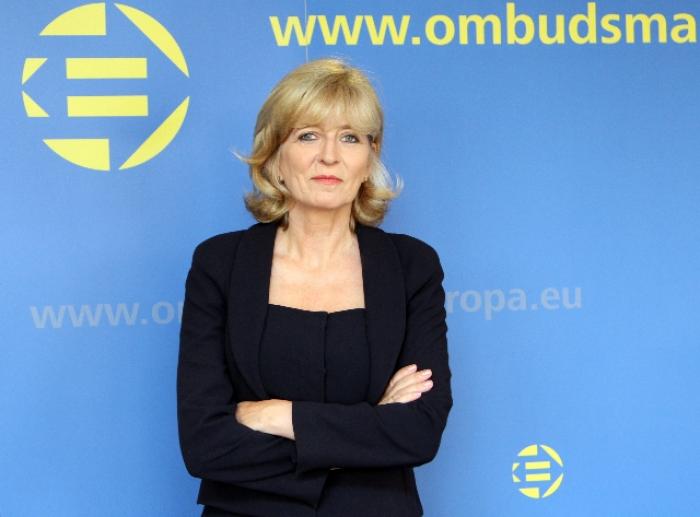The EU institutions have until shown reluctance to enforce their own ethics rules, sparking societal outrage. Yet it would not take a revolution to fix the ethical framework of the EU, MEP Daniel Freund argues.

Brussels is Europe’s lobbying capital. In a city where laws for more than 440 million citizens are being made, around 35,000 lobbyists try to influence European policy in the interests of their clients. Lobbying might have a bad reputation. But in itself it is not a bad thing, as long as it is transparent and follows the rules. In order to prevent hidden influence, conflicts of interests or even EU officials or politicians changing sides and becoming lobbyists to represent private interests, there are rules in place. Some lobby meetings must be made public. Former European Commissioners must adhere to ‘cooling off periods’. The rules regulating the conduct of elected and unelected officials in Brussels vis-á-vis representatives of private interest are among the best in Europe. However, there is a fly in the ointment.
Good rules in themselves do not automatically make for better conduct. They have to be enforced. Here, the EU institutions have shown reluctance in the past. In the European Parliament for example, despite at least 27 alleged breaches of the Code of Conduct, no procedure ever led to sanctions. The European Commission approved a large majority of former Commissioners’ requests for new occupations after their mandate. Even though caveats are being declared (such as ‘Do not lobby former colleagues!’) they are barely being followed-up on. Violations have not led to sanctions in the past. This also raises another fundamental flaw in the European Union’s ethical framework. As every institution reviews itself, rules are fragmented. Eventually, this creates the absurd situation that (former) colleagues judge and evaluate the behaviour of those whom they used to share an office with.
Good rules in themselves do not automatically make for better conduct
Fragmentation and lack of enforcement have created political scandals in the past. Former European Commission President José Manuel Barroso moved to the investment bank Goldman Sachs after leaving his high-profile position. He promised not to lobby his former colleagues. Only weeks later he broke this promise – and suffered no consequences. Since leaving the European Commission in December 2019, the former German Commissioner Günther Oettinger has taken up 14 subsequent jobs and founded his own consulting firm. Many of his new employers are registered lobbyists in Brussels. All this is happening during his ‘cooling-off’ period of two years. The former Dutch Commissioner Neelie Kroes (responsible among other things for Digital Affairs) was already criticised during her term of office because of possible conflicts of interest. Shortly after leaving the European Commission, she joined the US company Uber.
If breaches of the Code of Conduct go unchecked and unpunished they are laying a path for future violations. Even worse, they will have serious implications for citizens’ trust in democratic institutions. When people get the impression that EU policy is for sale and lobbyists can write their own laws, they turn away. This is a danger for democracy and plays into the hands of eurosceptics and populists. With the new EU budget and aid for COVID-19, Europe is spending more money than ever before. This great responsibility also means that we must ensure that this money is spent in the interest of the general public and does not favour wealthy individual interests.
It does not take a revolution in Brussels to fix the ethical framework of the EU
It does not take a revolution in Brussel to fix the ethical framework of the European Union. In order to ensure that the rules are respected in Brussels and that violations of the rules are consistently sanctioned, we Greens have proposed an independent ethics body. A new authority – comparable to similar bodies in Canada and France – should unify the ethics rules of the EU institutions (at the very least the Commission and European Parliament) and bundle their competences. French President Emmanuel Macron has pushed for this idea. Ursula von der Leyen has included the creation of an Ethics Body in the work programme of the European Commission.
But what should such an investigative authority look like? And what competences should it have? As the rapporteur in the European Parliament I have proposed three core elements to tackle the issue of unenforced ethics regulations.
The current system of institutional self-control has not shown itself to be effective in enforcing existing rules
First and foremost, an EU ethics body should be independent. The current system of institutional self-control has not shown itself to be effective in enforcing existing rules. Therefore, we need a truly independent panel of experts who are committed to the credible implementation of rules, not to their (former) colleagues or superiors. Each EU institution should have the power to nominate three experts. The Ethics Body would therefore be steered by a panel of nine.
Presently, each EU institution has its own ethics officers who interpret the same rules in different ways. We want to bundle the competences and the expertise in one single authority. The Ethics Body should be responsible for all European Commissioners, Parliamentarians, staff and EU employees at the same time. Other EU agencies like Frontex should have the opportunity and be encouraged to join the Ethics Body.
Rules will only ever be credibly enforced if violations will be followed by sanctions. In order to ensure that sanctions are actually imposed in cases of exceptionally serious breaches of the rules, ethics experts should not only be allowed to check but also to sanction. The EU Ombudsman and courts should obviously have the power to review these sanctions.
Rules will only ever be credibly enforced if violations will be followed by sanctions
The legal road towards an EU Ethics Body is less bumpy than it might seem. For the creation of the authority I propose the form of an interinstitutional agreement between the participating institutions, based on Article 295 of the Treaty of the European Union. Existing powers and regulations would be bundled in one new authority. The steeper hill to climb will be to create political majorities in the EU institutions. In order to make the ambitious project on an Ethics Body successful we will need the support of all pro-European groups in the European Parliament. The outcome would be rewarding as it would contribute to growing trust in democratic policy making on a European level.
This article appeared earlier on EU Law Live as part of a special issue on EU transparency law.
Daniel Freund is MEP and rapporteur for an independent Ethics Body for the Greens in the European Parliament.


